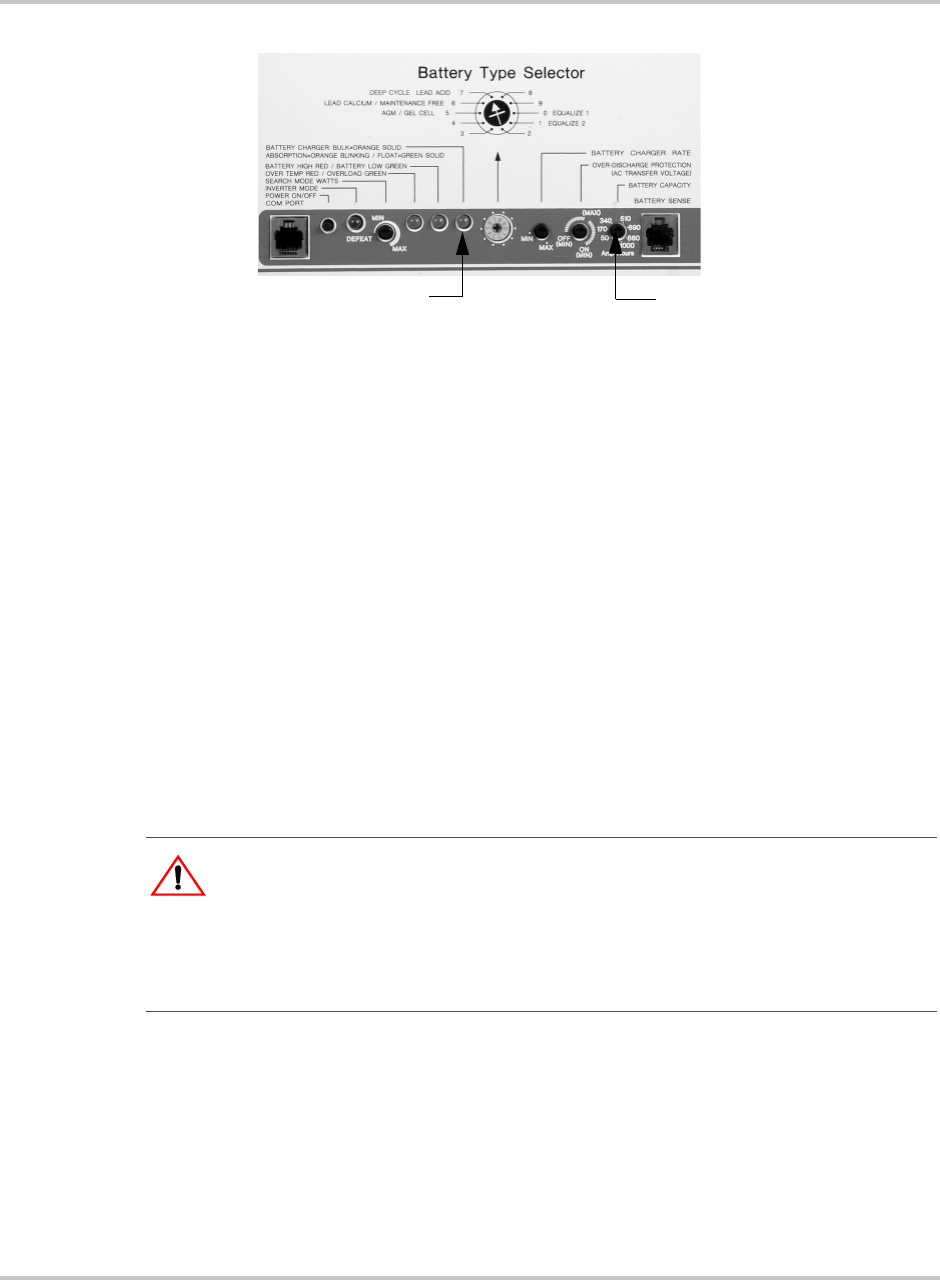
Operation
3–18 975-0012-01-02 Rev A
Equalize Charging
Equalize charging is a special mode of battery charging. During use, the battery’s
cells can become unequal in the voltage and current they can deliver. This is due
to a buildup of sulfate on the plates as well as stratified electrolyte. Sulfate
prevents the cells from receiving or delivering full power. If the sulfate is left on
the plates, it will harden, and permanently reduce the battery’s capacity.
Stratification separates the heaver acid from the water, and the concentrated acid
remains at the lower portion of the plates, eventually corroding them.
Equalize charging holds the battery at the Equalize voltage for a minimum of
6 hours. This stirs up the electrolyte, distributing the acid, and removing the
sulfate from the plates. Equalizing the batteries every month or two (depending on
usage) prolongs the life of the batteries and provides better battery performance.
To Set the Equalize Charge:
1. Remove all DC loads connected to the batteries.
2. Remove all battery vent caps.
3. Check the battery water level, it should be just over the top of the plates (do
not overfill). Use only distilled water for filling batteries.
Figure 3-14
Charger Controls and Indicators
Battery Charger LED
Solid Orange = Bulk
Blinking Orange = Absorption
Solid Green = Float
Battery Capacity
CAUTION: Explosion Hazard
Only unsealed or vented batteries should be equalize charged. Since Hydrogen and
oxygen gases are produced when equalized, provide adequate ventilation and remove all
sources of ignition to prevent explosion. Remove DC loads while equalizing as they can
be damaged by the higher battery voltage. Consult the battery manufacturer’s
recommendation for equalize charging settings.
